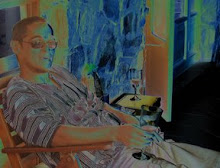Sunday, 18 January 2015
Natural Resources...
The near distant roar
Falling water
Epupa
Across
The narrowed river
Angola
Beneath
Manicured thatch
Omarunga
Water
And wind without
Nationality
Without
A continental identity
African
Elemental
Eternally explored
Enslaved
Oppressed
Yet mostly un-mastered
Martyred
Soil
Sons and daughters natural
Resources.
Pornography or prostitution?
It is a combination of cultural pornography and touristic
prostitution that further entrenches ideas of being the lesser ‘other’ that is
required to afford the perceived superior and foreign other to enter into
spaces as if visitors in a zoo where entire countries and histories are on
display to be gawked at or prodded and poked.
Throughout Africa, tourism is a big money-spinner and every
incident whether the recent mainstream coverage of the outbreak of Ebola or
news of yet another Boko Haram attack, has major impacts on an industry that
for the main part generates huge profits for private businesses as opposed to what
trickles into national coffers through visa fees. And yet tourism is touted as
the lifeblood of many impoverished areas where lodge owners engage with
surrounding communities through necessity rather than any noble altruistic
inclinations. Often these relationships are anything but successful as rows of
craft and curio stalls try to attract a tiny trickle of visitors who venture
beyond the security gates and then only to have to haggle with well-healed
tourists over the value of the trinket. These same tourists think nothing of
spending six dollars for a cold beer at the bar and never walk out of a
supermarket without whatever it is they wanted, but come to crafters and they
get some imperialist joy out of bargaining and trying to impose a price that is
based on an underestimated value of what it takes to produce whatever it is
they want to fit into their hand luggage for so-and-so a friend or for the
corner of the mantle that is standing bare.
Then there are the village tours and township tours where
they want to point their cameras at the faces of poverty and desperation that
have been coerced into allowing such an invasion through a lack of viable
alternatives. The proud people of Africa reduced once again to nothing more
than a curiosity. And not everyone, but those who have been sold and have bought
the mistruth that there is a living to be made from such behaviour. Despite my
reservations though, I have seen the levels of poverty and understand the
willingness to be made a subject of scrutiny for a fee, but what I cannot
fathom is the type of human being that would get some kind of kick out of
visiting the zoo. What kind of latent voyeuristic tendencies must be lurking
behind the social veneer of propriety that is more than often presented as the
image of western culture and civilization? How easily that façade is cracked when
given the opportunity to photograph the naked breasts of an African mother or
child?
So whether it is a matter of cultural pornography or
touristic prostitution is quite irrelevant! What it is, is fucking wacked!
Tuesday, 13 January 2015
Morsigge Varke!
Manners maketh man! It is said…
However when travelling through Africa such considerations
are not important. What is important are notions of privilege, entitlement,
arrogance and the simpleton’s confirmation that sanctions centuries-old
preconceptions and confirms opinions gathered from the propagandized mainstream-media.
Suddenly to greet is not necessary and a simple ‘thank-you’
is more than most deserve. Rubbish can be left for someone else to pick up and
it is quite okay to leave dirty dishes because someone else will surely clean
it: and not to mention when the dishes are done and there are cups and plates
and bowls that still have visible streaks and blobs of food. Die varke is kak morsig!
It makes me wonder whether any of these people actually wipe
their asses or whether they have a cleaner to take care of personal hygiene as
well!
And yet, mention is regularly
made of how ‘civilized’ it is to have ice in their gin and tonic after a long,
hot day on the road. Or how someone will ‘die for a cup of tea’ and I think to
myself “Yes! Please do the world a favour!”
Wednesday, 7 January 2015
The low-down on the high ground...
President Robert Mugabe of Zimbabwe has certainly managed to
get things working in the tiny little town of Victoria Falls situated just
beneath the falls and close to the border with Zambia. The streets are clean
and lined with slick coffee shops, African-themed restaurants and an endless
assortment of curio and craft shops catering exclusively to the tourist market.
Over the past few weeks I have had to deal with six
different currencies and I had to brush up on my algebra to make sense of the
value of these currencies. For instance, in Tanzania where 10000 Tanzanian
Shillings is equivalent to about 60 South African Rands, a loaf of bread works
out to about R6. At the local OK supermarket in Vic Falls, prices are quoted in
US Dollars and a loaf of bread is $1.85. In Dar es Sallam I bought some shorts
which cost me around R40, but at the Jet clothing store in Zim, a shorts costs
$25.
My dilemma here is twofold. Firstly, how does the average
unemployed Zimbabwean survive? And secondly, what’s up with using the American
currency while making headlines for a hard core stance on colonial interests
and imperialism?
At the massive outdoor craft markets there are hundreds of
stall owners who are for the most part trying to earn a buck selling variations
of the same carved animals and masks. There are always one or two real artists
at these markets whose work makes one stop and take notice; but it saddens me
to think that someone like Baino Nyamhondoro has to haggle with dumb-ass
foreigners to earn a fraction of what his work is worth. When I visited him he
even offered to trade me something for old clothes or food.
And as I said, Victoria Falls is one of the success stories
of the current Zimbabwean reality.
Monday, 5 January 2015
The future of the past...
Tanzania gained its independence from British colonial rule
in 1961 and two years later in 1963, Kenya and Malawi followed suit. In 1964 it was Zambia’s turn and finally in
1980 Zimbabwe also became an independent state. Travelling through these
countries one is struck by a similar socio-economic reality that is defined by
a general infra-structural under-development and widespread poverty.
As a rule, British travellers speak of the brutish colonial
past with barely muted pride and refer fondly to historical anecdotes as if
oppression then was an act of benevolence. They are largely unaffected by the
plight of the people and if possible would prefer to remain at a safe distance
from crafters and traders who often feel obliged to harass tourists in an
attempt to make just one overpriced sale.
In a sense tour groups are like visitors to a zoo, but in
this case entire countries are on display in their cages of poverty and
desperation. Towns which have some kind of natural attraction have lost their
identity and could be any tourist trap anywhere with quaint and mostly
expensive coffee shops, African themed restaurants and of course endless craft
markets with sometimes hundreds of stall owners trying to scrape by.
Governments on the other hand are cosying up to the USA
through USAID and China for trade deals in which most locals are overlooked or
underpaid. Progressive social ideals have been discarded to make way for free
markets that ensure international loans and cooperation and the continued
outflow of profits to these economic partners. The British are for the most
part uninvolved and yet the ‘ordinary’ British citizens who can afford to
travel still feel entitled and arrogantly superior with lopsided, propagandized
opinions borrowed directly from the international media and Wikipedia.
Having said all of that though, I saw a painting in the
Tinga Tinga Gallery in Meserani just outside of Arusha by one of the local
painters whose name I forget. It was a village scene with a protest theme and
in the centre of the image was a stern looking face staring directly at the
viewer with a placard held aloft that read: “African Presidents kill
100 000 people.”
And I sit and wonder what notions of responsibility for
freedom and independence mean after all is said and done…
Thursday, 1 January 2015
Click...
“Africa is black!”
He shouted angrily
As I walked away
Thinking
“Fuck you!”
Africa is battered
And bruised
Africa is blue
And purple and brown.
All because I wanted to reflect
I wanted to embrace
The whispering lake
And the clouds
And the sunset
And the moment,
But beach-boy couldn’t imagine
That I could be immune
To his golliwog song-and-dance.
Africa still bleeds
The wounds still raw
Festering minds colonized
With carved hands
Grasping for tourist dollars
Passing through
The half-smiling zoo
With bags of medication
And preconceptions intact.
No-one utters a word
The civilized brutality
And prejudice intact
Overlooking the bloodied white hand
Nurturing murderous despots
Pointing manicured fingers
Ignoring the abject desperation
Of a mother drenched and begging
From a passing vehicle with cameras drawn.
The other side of the Tanzanian Shilling...
It’s the rainy season and everything is lush. The most
prominent feature of the landscape however is the lack of fencing. Closer to clusters
of homes – mostly mud huts with the structural sticks showing through the walls
– the land is tilled and planted or being prepared to receive a combination of
the various subsistence crops. Larger plantations are worked by co-operatives
of local farmers who in some instances are exporting their tea or coffee, but
all are able to varying degrees to sustain themselves from the land. Their land
and their birth right.
Again, along the streets the crafters and traders are busy:
mostly selling Tanzanian products including T-shirts that are being manufactured
and printed locally and not made in China… like the road network. The ugly face
of poverty is prevalent but there is an industriousness – a wilful and
determined drive to survive and beat the odds. And ‘well-off’ implies having
the means to simply generate an income without the ugliness of excess. That
doesn’t mean that consumerism hasn’t left its mark as the streets are lined
with litter and plastic that seems to have become a permanent part of both the
urban and rural landscape.
We slept over in a place called Same but pronounced Sami.
Sometimes the joy of a comfortable bed is redundant when work finishes late and
starts early; last to bed and first to rise and all of that shit… no birds, no
worms. Another early morning and another treacherous road through beautiful
scenery; with overloaded trucks and the passing smell of brakes or clutch burning
and the inevitable avoidable accidents. Jack-knifes, over-turns, head-ons and
drivers seemingly falling asleep on sharp bends resulting in trucks and loads
hanging precariously from trees above lush and welcoming ravines.
But then there are also the stories about Chogela who cycled
from Arusha to Ruaha to negotiate with the chief for land to establish a camp
just outside the national park from where he runs tours; and Simba who studied
medicine in Germany to return to Iringa where he is planting a medicinal garden
just alongside the Isimila stone-age site on land given him by the
municipality. As he proudly showed me around the property, he spoke
optimistically of the formation of the East African Union and his own plans to
open a lodge and develop a cultural tour of the region.
The roads may be fucked but the people are not deterred…
Subscribe to:
Comments (Atom)



















